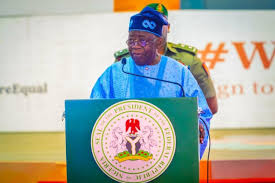In the immediate aftermath of Russia’s invasion of Ukraine, oil prices surged to over $120 per barrel. This was no surprise considering sanctions heaped on Russia including the ban on Russian oil by America and its NATO allies; basically the whole of Europe. It was basic economics. Russia was a major exporter of oil and gas to the whole of Europe and it’s only natural that any disruption in the supply of Russian energy to Europe will affect demand and, by extension, prices.
As a direct consequence, OPEC increased quota to its member countries in a desperate bid to plug supply shortfalls in Europe and the Americas. To drive the prices down, however, the United States of America had to open its oil strategic reserves to cushion supply shocks in Europe. This played a major role in the stabilisation and return of oil prices to prewar levels, but that’s not the only reason.
As condemnation of Russia raged, some countries just didn’t join the entire world in demonising Russia, at least, not as far as blacklisting Russian oil and gas. So, with Russian oil pegged at $60 per barrel, some countries naturally opted to buy cheaper Russian oil at the expense of the internationally priced and controlled crude oil. Therefore, with less buyers coming to the pricy market, oil prices just about stabilised back to prewar margins.
Nigeria, like many nations of the OPEC oil cartel, has seen some of their most ardent customers cut down on purchase volumes perhaps in preference of cheaper oil. For instance, prewar, Nigeria’s oil trade volume with India stood at 250,000 barrels per day (bpd). But since India found comfort in Russia’s cheap oil, that trade volume with Nigeria has nosedived to 194,000 barrels per day (bpd) in the six months since war broke out. Only about 120,000 barrels per day of Nigerian crude has sailed to India this year.
Maryamu Idris, Executive Director, Crude & Condensate, NNPC Trading Limited, confirmed this during a panel presentation at the Argus European Crude Conference in London. She declared that “in addition to the substantial price shocks impacting commodity and energy prices globally, the conflict between Russia and Ukraine has triggered a situation where India, a primary destination for Nigerian grades, increased its appetite for discounted Russian barrels to the detriment of some Nigerian volumes”.
Thankfully, India’s loss appears to be Europe’s gain. In the six months preceding Russia’s invasion of Ukraine for instance, Nigerian oil exports to Europe stood at 670,000 bps. This figure jumped to 710,000 bpd six months into the war and above 730,000 bpd this year. But with the USA now also flooding the market with fossil fuel signalling a rebound of oil production from COVID-19 production slumps, the oil market is becoming more competitive by the day. To stay afloat therefore, oil producing nations must think outside the box to come up with better quality crude that’ll translate into higher demands for their products.
Nigeria appears to be on the front foot of that necessary Innovations as NNPCL and its partners, AITEO, recently launched the Nembe Crude oil variants in London during the Argus European Crude Conference. During the launch, NNPC leadership as well as AITEO’s E & P highlighted the unique selling point of the Nembe Crude Oil grade with an API gravity to include low sulphur content and low carbon footprint due to flare gas elimination, making it a perfectly fitting spec required by major buyers in Europe.
Already, two cargoes of 950,000 barrels each of the Nembe Crude Oil grade have since shipped to France and the Netherlands with NNPC estimating at least two Cargoes of 950,000 barrels each per month and 1.2 Bcf of export gas monthly. With the NNPC-Aiteo OML 29 JV back onstream, Nigeria now boasts an additional crude oil export of 2 Cargoes at 950,000 barrels each per month and 1.2 Bcf of export gas monthly.
Add this new oil well to improved security on Nigeria’s oil installations, and the issues of Nigeria not meeting a daily quota of two million barrels per day looks increasingly surmountable. Other oil exploration frontiers are also on their way to contributing to Nigeria’s daily oil haulage and for this, we can’t but commend the leadership of the NNPCL.
There’s even more. The NNPCL recently entered into a very strategic partnership with the Niger state government for the development of renewable energy and low-carbon solutions projects. The intent of this bold step is obvious. Besides the obvious importance of investing in alternative energy sources, especially renewable energy, this move signals a deliberate attempt to diversify Nigeria’s economy by boosting non-fossil fuel energy income. This is in keeping with massive investments in renewable energy by major crude oil producing nations. For instance, Reuters reported that Saudi Arabia plans to invest about $266.40 billion in renewable energy. The gulf nation has the bold vision of producing 50% of its power generation through clean energy by 2030 which is about 7 years away.
It is for this reason that NNPCL must double it’s efforts towards mainstreaming investment in clean energy. This no doubt is the reason why the new NNPCL leadership must be commended. Nigeria is endowed with an abundance of clean energy sources waiting to be harnessed for national growth and development. It’s left to be seen how vigorously the NNPCL plans to pursue it’s bold mandate of utilising renewable energy to solve Nigeria’s energy and economic needs.
As we peep ahead of the winding road snaking ahead of Nigeria’s resilient march towards economic stability, we must be resolute in our support of people like Mele Kyari, NNPCL’s chief executive, whose relentless efforts towards utilising the full substance of the Petroleum Industry Act (PIA) to transform Nigeria’s fortunes is simply exemplary.
Philip writes from Abuja




